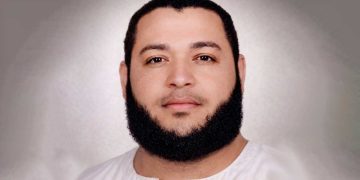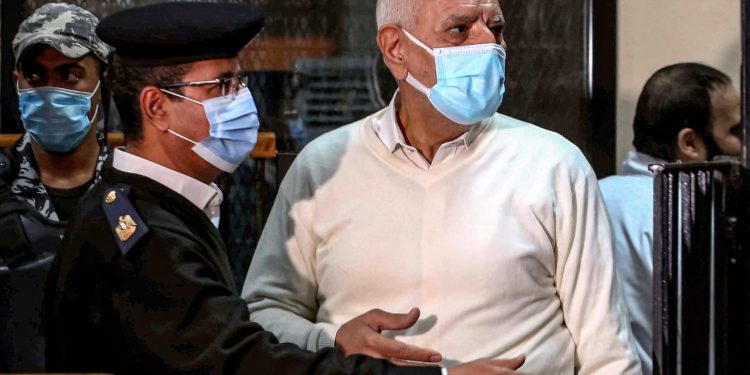The family of detained former presidential candidate and Strong Egypt party leader Abdel Moneim Abou al-Fotouh have submitted an urgent request to the public prosecutor and the Ministry of Interior to intervene to save his life, after a sharp deterioration of Abou al-Fotouh’s health due to a bout of bronchitis.
Abou al-Fotouh’s son, Hudhaifah Abou al-Fotouh, has said that he has requested of the authorities that his father be transferred to a hospital, whether within or outside of Tora Prison, where Abdel Moneim is being held, and at the family’s expense.
Abou al-Fotouh’s family report that they fear that whilst he continues to suffer from a serious case of bronchitis he will be exposed to Coronavirus, which is rampant within the Egyptian prison system.
Abou al-Fotouh has suffered a number of health crises whilst held in solitary confinement in Tora, south of Cairo.
Last April he suffered a life-threatening heart attack after he was attacked by a prison officer.
Abou al-Fotouh suffers from several chronic diseases, including heart disease, high blood pressure, diabetes, issues with his prostate, plus kidney and bladder stones. He has also suffered a slipped disc whilst in prison.
Abou al-Fotouh was arrested in March 2018 on his return from London, following an interview with Al-Jazeera in which he criticised the current Egyptian president, Abdel Fattah al-Sisi prior to the latter’s re-election that year. Abou al-Fotouh, a presidential candidate in 2012, was charged with ‘leading a terrorist group’ and related charges, and of ‘deliberately spreading false news, statements and rumors at home and abroad.’
On the basis of those charges Abou al-Fotouh was sentenced to 15 years in prison, whilst Muhammad al-Qassas, the deputy of the political party Abou al-Fotouh leads, Strong Egypt, received 10 years in prison. Al-Qassas had already spent four years of pre-trial detention in a solitary cell.
Both men were tried by the Supreme State Security Court, against which there are no appeals.
The Egyptian authorities continued to deprive Abou al-Fotouh of books, periodicals, television, and even radio. He is allowed to receive one 20-minute visit per month – behind a glass screen – from one immediate family member.






























